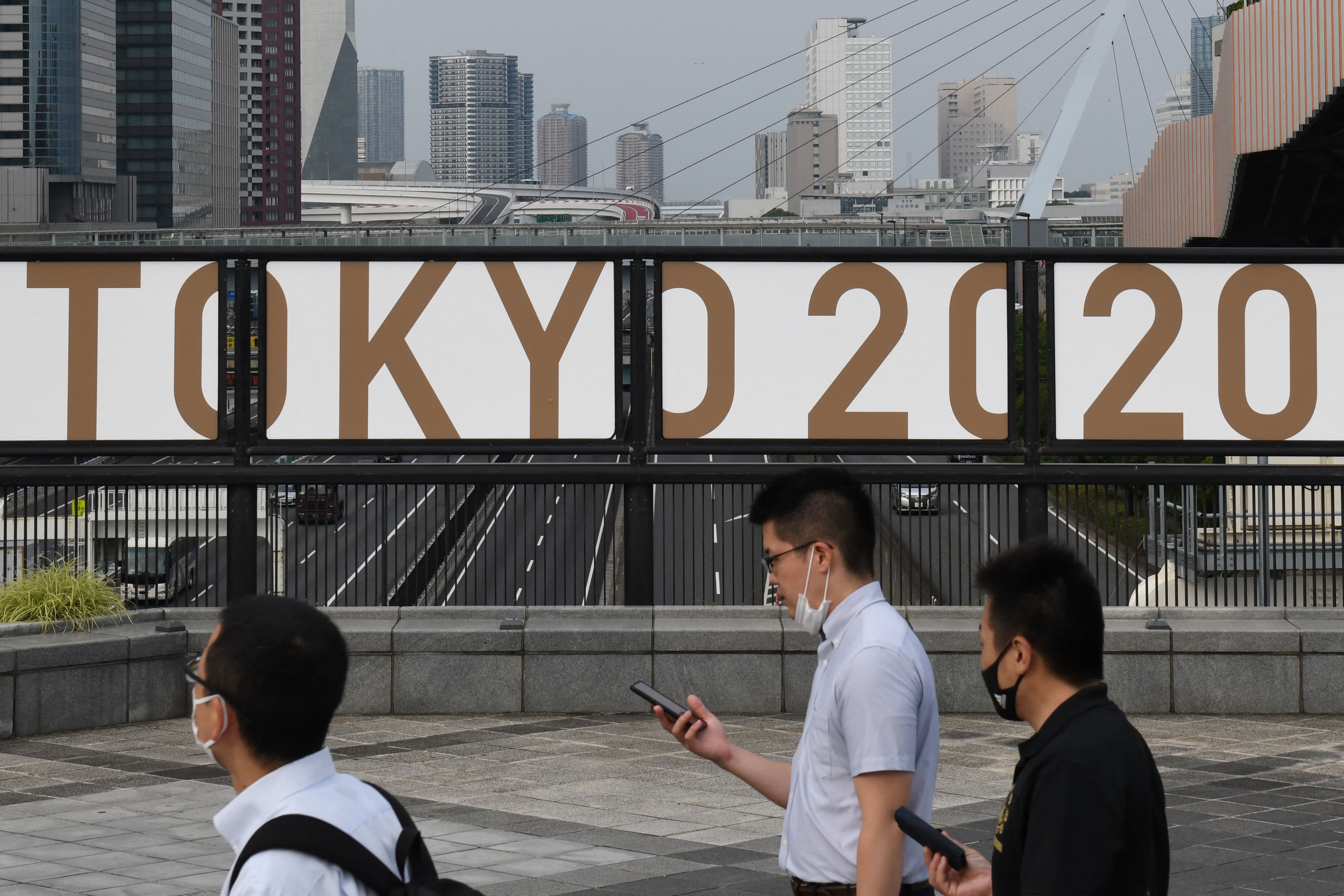On July 7, 2021, the Tokyo 2020 emblem is shown at Odaiba Seaside Park in Tokyo, amid reports that the Japanese government plans to declare a viral emergency in Tokyo during the Olympics. Getty Images | Kazuhiro Nogi | AFP The Asahi daily reported on Thursday that Olympic organizers are planning to prohibit all spectators from the Games, as Japan imposed a coronavirus state of emergency for Tokyo that will last until the event’s hosting to prevent a new wave of infections. According to the newspaper, organizers were due to formally reach a decision on spectators during a five-way meeting between major stakeholders on Thursday. If confirmed, the spectator ban would be the latest setback for the Olympic Games, which have already been delayed by a year due to the pandemic and beset by a series of problems, including major financial overruns. Despite widespread public fears that an infusion of thousands of athletes and officials may feed a new wave of diseases, medical experts have warned for weeks that having no spectators at the Games would be the least risky choice. “Of course, I favor ‘no spectators,’ but fears will never go away as long as we have a major event like the Olympics, as well as vacations and vacation season,” Yuki Furuse, a Kyoto University professor who works with the government’s coronavirus experts group, said. According to Furuse, new daily cases in Tokyo might rise to 1,000 in July and 2,000 in August, putting hospitals in the capital region at risk of running out of beds. Clap instead of cheering or singing to show your support for athletes. Sponsors are canceling or reducing back booths and events related to the Games, sources told Reuters, irritated by organizers’ “very last-minute” decisions. The talks will be conducted by Thomas Bach, the president of the International Olympic Committee (IOC), who arrived in Tokyo on Thursday at 8 p.m. (1100 GMT). The Tokyo and national governments, as well as Paralympic authorities, are among the other participants. “We need to intensify our countermeasures, taking into account the effect of coronavirus variations and avoiding allowing the diseases to spread to the rest of the country,” Prime Minister Yoshihide Suga said. “In light of the situation, we are declaring a state of emergency in Tokyo.” Although Japan has not had the massive COVID-19 outbreaks that have plagued many other countries, it has witnessed over 810,000 cases and 14,900 deaths. Only a quarter of the population has received at least one COVID-19 vaccination dose due to a sluggish vaccine introduction. The declaration of a fresh state of emergency in Tokyo came after the metropolis reported 896 new daily infections on Thursday, nearing mid-May highs. The new limits in Tokyo, which will require eateries to stop serving alcohol, will take effect on Monday and will last until August 22. The Games will take place from July 23 through August 8. According to a person acquainted with the matter, organizers have presented potential spectator scenarios to Olympic sponsors as late as Wednesday, highlighting the last-minute nature of preparations. Sponsors were informed that if there were no spectators, all sports, as well as the opening and closing ceremonies, would most certainly be held without spectators, preventing the usage of tickets given to sponsors. The Games’ budget, which has already ballooned to an estimated $15.4 billion, would likely be further strained by the lack of spectators, with ticket revenues of approximately $815 million projected to suffer a hit. An email requesting comment from the organizing group was not immediately returned. Until last week, officials insisted that the Games could be held safely with some spectators, but a ruling party loss in a Tokyo assembly election on Sunday, which some Suga allies blamed on public outrage over the Olympics, forced a shift in strategy, according to sources. Japan will host parliamentary elections later this year, and the government’s determination that the Games, which were postponed last year due to the global spread of the virus, be held this year could lose it votes, they claimed. Disclosure: NBC Sports and NBC Olympics are owned by NBCUniversal, the parent company of CNBC. NBC Olympics holds the broadcast rights to all Summer and Winter Games in the United States until 2032./n
Read MoreJapan PM Suga declares state of Covid emergency in Tokyo
2021-07-08T08:56:09-04:00July 8th, 2021|





